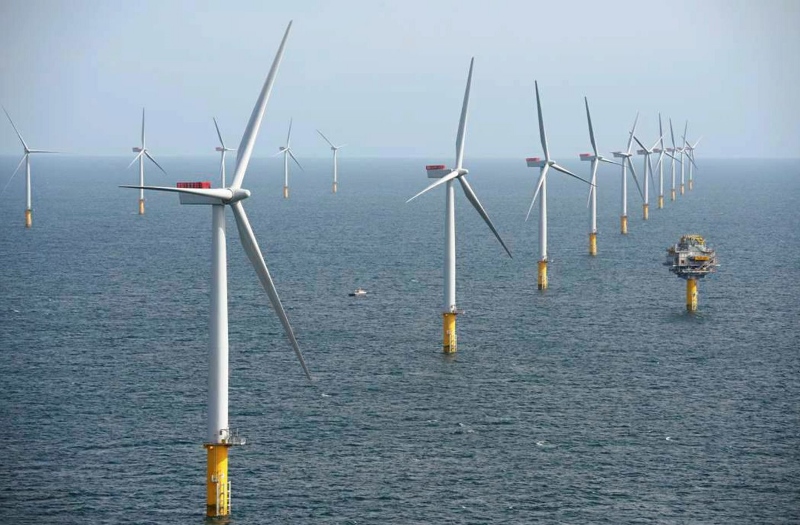Two European companies made new unsolicited requests for federal offshore wind energy leases off New York and Massachusetts, including a second proposed area near shipping lanes close to Long Island, and areas totaling nearly 390,000 acres southwest of Nantucket.
Statoil Wind US LLC, a subsidiary of Norwegian energy major Statoil, and PNE Wind USA Inc., a subsidiary of German offshore wind developer PNE Wind AG, are both seeking to bid on two areas of 248,015 acres and 140,554 acres in federal waters south of Massachusetts.

A map shows PNE's unsolicited proposed wind energy area off New York.
Those proposed leases would be near wind energy zones recently leased by Danish-based DONG Energy. Off Long Island, PNE has proposed leasing 40,920 acres east of Statoil’s nearly 80,000-acre New York wind energy lease, granted by the Bureau of Ocean Energy Management in December 2016 for a record-setting $42.5 million.
Commercial fishing industry groups have already challenged Statoil's New York lease in court, arguing that BOEM did not adequately evaluate the project's impact on scallop and squid fishing fleets. A federal judge in February refused to issue an injunction against the lease but fishermen said they will continue to oppose the plan.
Statoil’s winning bid, preceded by DONG’s move into Northeast and Mid-Atlantic leases, underscore how major players in the European offshore wind energy industry see potential for selling into U.S. East Coast urban areas. The new requests announced by BOEM were submitted by Statoil and PNE in December and January.
Wind power advocates publicly express optimism for offshore prospects in the coming years. But it is unclear how developers’ applications may fare under the Trump administration.
President Trump himself has opposed an offshore wind project near one of his golf course properties in Scotland. There has been little indication how the administration will regard wind power, even as offshore oil and gas industry spokesmen express confidence the administration will seek to undo restrictions on Atlantic and Arctic exploration imposed in the final weeks of the Obama administration.
Under Trump, resources for BOEM’s offshore wind permitting review could be reduced, slowing developers’ progress. But where the industry already has a foothold — including Rhode Island, Massachusetts, New York and Maryland — projects have political support from state officials and lawmakers. With planning and construction timelines that extend through the 2020s, they could wait out a federal pullback on wind energy.




